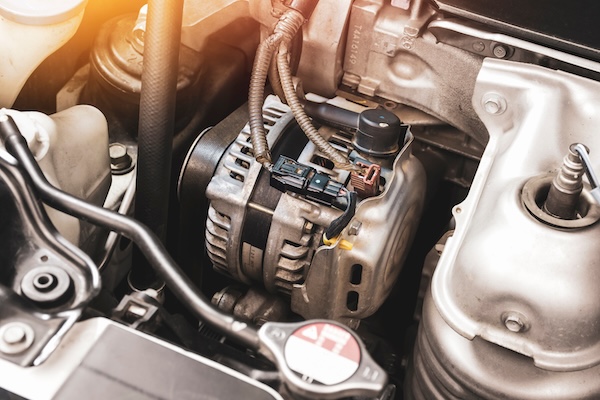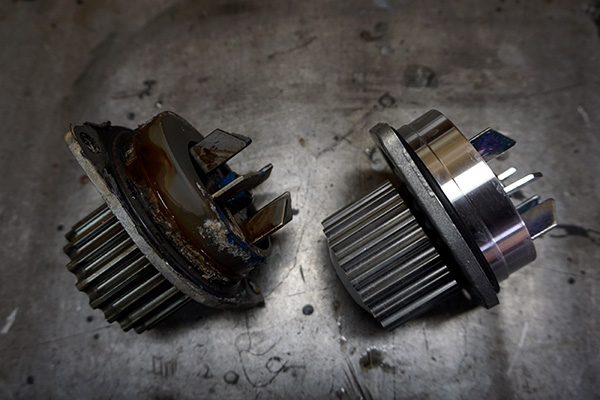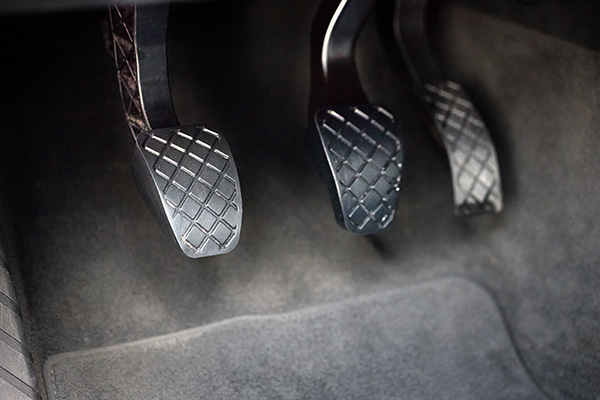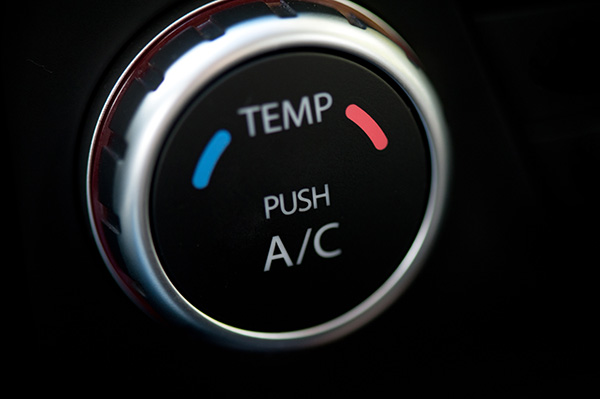Posted on 2/26/2026

Your vehicle relies on a complex electrical system to operate everything from the headlights to the engine management system. At the heart of that system is the alternator. When the alternator begins to fail, it can cause a range of issues that affect performance, reliability, and safety. Because alternator issues often mimic battery or electrical problems, they can be confusing for drivers. Recognizing the warning signs early can help you avoid breakdowns and costly repairs. What Does the Alternator Do? The alternator generates electrical power while your engine is running. It keeps the battery charged and supplies electricity to all of your vehicle’s electrical components. Once the engine starts, the alternator takes over, enabling systems such as headlights, climate control, fuel injection, and onboard computers to function properly. When the alternator fails, the battery must supply all electrical power. This quickly ... read more
Posted on 1/30/2026

A water pump failure rarely starts with a big puddle and steam pouring out from under the hood. More often, it starts with small changes you can easily chalk up to weather, traffic, or an aging car. The problem is, once a pump truly lets go, the temperature can climb quickly, and you do not get much time to react. If you learn the early signals and what they usually mean, you can catch a weakening water pump before it turns into an overheating event. The clues are there, but they just show up in quiet, easy-to-miss ways. What The Water Pump Does And Why It Matters The water pump circulates coolant through the engine and radiator. That flow is what carries heat away from the engine, keeps temperatures stable, and allows the heater to work properly. When the pump is weak, coolant may not move fast enough under load, which can cause heat to build in certain conditions, even if the gauge looks fine most of the time. Some pumps are driven by the serpentine belt, while o ... read more
Posted on 12/19/2025

A clutch pedal that suddenly stays on the floor feels scary, and it can leave you wondering if the car will move again or if you are about to be stranded. Sometimes you can hook the pedal with your toe and pull it back up, other times it refuses to come back at all. When that happens, you are usually dealing with a hydraulic problem, not the clutch disc itself, and it is something that should be checked sooner rather than later. What It Feels Like When the Clutch Pedal Stays Down Many drivers first notice the pedal getting “mushy” before it finally sticks. The pedal may feel softer than usual, sink lower with less effort, or take longer to return after you shift. Gear changes might start to feel vague or slightly crunchy, especially going into first or reverse. You may also see the pedal stay on the floor after a hard stop or a quick downshift. Once the pedal stays fully down, shifting becomes difficult or impossible. You might hear grinding when trying ... read more
Posted on 11/28/2025

Daily driving a Jeep in New Orleans means heat, humidity, potholes, and the occasional flooded street. Add weekends on the levee trails or a Gulf Coast trip, and the setup needs to be calm on I-10 yet tough on dirt. Here is how we build reliable Jeeps that track straight, run cool, and feel solid every day, without turning maintenance into a second job. Start With Tires And Diameter Before Anything Else Tires decide how your Jeep rides, steers, and stops. We match the diameter to how you actually drive. True 33s work well for mixed city and weekend use, while 35s need thoughtful support parts. Load range matters: C or D range tires ride better on broken pavement than stiff E range rubber. In our climate, an all-terrain with good wet grip beats an aggressive mud tread for daily safety. Proper balancing and a rotation plan keep noise down and tread even. Lift Height That Protects Geometry, Not Just Looks More height changes caster, toe, brake line ... read more
Posted on 10/31/2025

You’re heading out on a chilly morning, you crank up the heat in your car, and all you get is cold air blowing from the vents. It’s frustrating and uncomfortable, but it can also indicate a more serious issue with your vehicle’s heating system. If your car heater isn’t working properly, it usually indicates problems with the cooling system, HVAC components, or low coolant levels. Here’s a closer look at why your heater might be blowing cold air and what you can do to fix it before the temperatures drop further. Low Coolant Level Coolant isn’t just for keeping your engine from overheating, but also supplies heat to the cabin. Your car’s heater uses hot coolant from the engine to warm up the air that flows through your vents. If the coolant level is too low, the system can’t produce enough warm air, and you’ll feel it inside the car. Low coolant is often the result of a leak somewhere in the system. If you also no ... read more